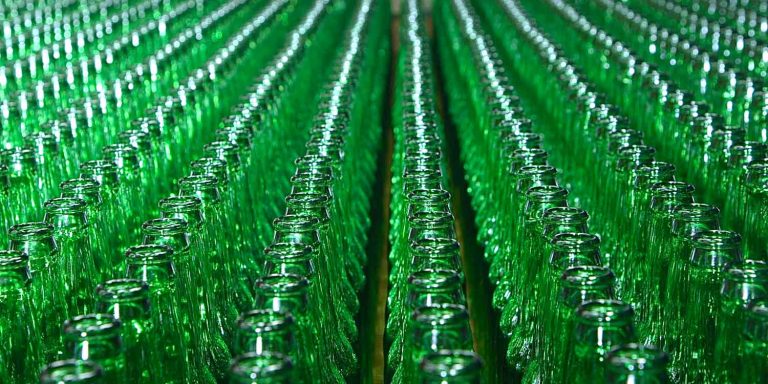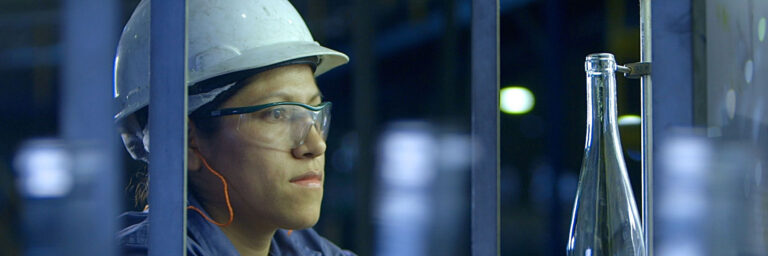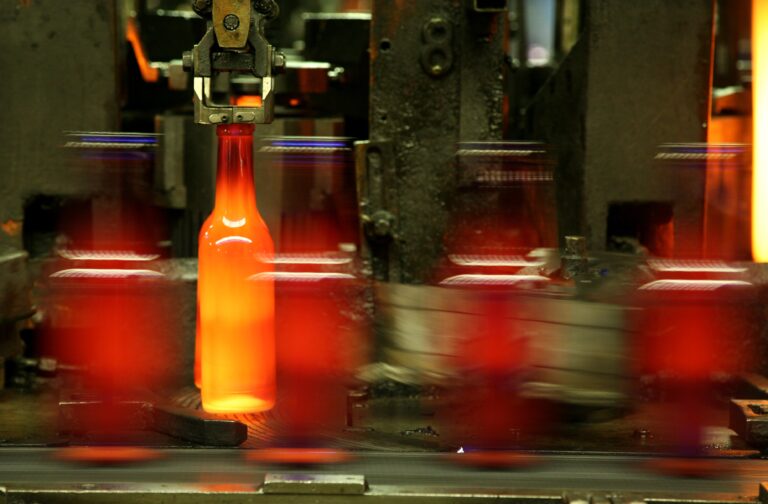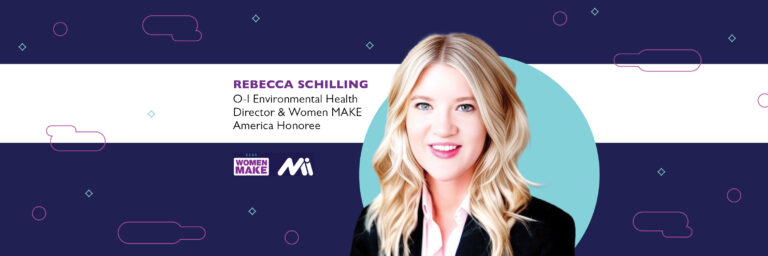Green Bond Net Proceeds Allocated for Sustainable Projects
Perrysburg, Ohio, Nov. 12, 2020 (GLOBE NEWSWIRE) — In November of 2019, O-I European Group B.V., a subsidiary of O-I Glass, Inc. (NYSE: O-I) was the first packaging Company to issue a Green Bond (EUR 500 million). The company has committed to allocate an amount equal to the net proceeds from the Green Bond offering to finance and/or refinance new and/or existing Eligible Green Projects within 36 months from the issue date of the Green Bond. As of November 2020, the Company has allocated EUR 255.6 million to Eligible Green Projects.
This allocation includes new investments in purchasing recycled glass (cullet) to further improve the environmental footprint of O-I’s products and production. The purchase of cullet qualifies as an Eligible Green Project as it supports the circular economy through building demand for post-consumer recycled glass and increasing recycled content in new glass packaging.
“Sustainability is integrated into every aspect of O-I’s culture and operations,” said Andres Lopez, Chief Executive Officer for O-I. “Our vision is to be the most innovative, sustainable, and chosen supplier of brand-building packaging, building value for all stakeholders. This Green Bond represents our ongoing commitment to find and execute innovative strategies to elevate our sustainability ambitions.”
To advance these aspirations and ensure sustainability initiatives are driven deep into the company, O-I also recently appointed its first Chief Sustainability Officer, Randolph Burns, who reports directly to the CEO. The Company is actively working to improve the U.S. glass recycling system, building on the successful model in Europe where glass recycling outpaces all other packaging materials.
“We also have initiated a glass advocacy campaign initially focused in the U.S.,” Lopez continued. “This effort will ensure to rebalance the public discussion on social and traditional media with regards to the inherent sustainable nature of glass as well as emphasizing the many benefits of our product including the healthy, premium and brand building characteristics of glass.”
O-I sustainability ambitions are also aligned with the United Nations Sustainable Development Goals and include science-based targets to reduce emissions.
The investment in cullet directly supports these targets by cutting carbon emissions, reducing energy and conserving natural resources while diverting valuable glass feedstock from the landfills. For example, for every 10 percent of cullet used in production, energy consumption is reduced by three percent and carbon emissions are cut by about five percent.
The cullet purchased as a result of Green Bond net proceeds corresponds with the conservation of more than 1.4 million metric tons of CO2—or the equivalent CO2 generated to electrically power all the homes in the state of Vermont for one year.
Other sustainability initiatives the company is currently pursuing include the process of converting seven North American plants to LED lighting and the use of Oxy-Fuel to increase furnace efficiencies.
The shift to LED lighting at the Muskogee, Auburn, Windsor, Waco, Winston-Salem, Lapel and Brampton facilities reduces energy consumption associated with production—further contributing to decarbonization. The expected energy savings in Windsor, alone, is the equivalent to saving three million pounds of carbon per year—or the equivalent of removing 300 cars from the road.
To advance energy reduction, O-I is also investing in the use of oxy-fuel for furnaces, which uses purified oxygen, rather than air, during combustion. This shift reduces energy input while minimizing gas flow and emissions. Most recently, facilities in Villotta, Italy and Jarvakandi, Estonia have incorporated Oxy-Fuel, achieving the lowest CO2 intensities per ton in the O-I network. O-I’s revolutionary MAGMA technology also advances the sustainability of glass manufacturing by, among other things, increasing flexibility with on-off technology, reparability, potential co-location or near-location possibilities and light weighting.
Management’s assertion on the allocation of net proceeds to qualifying Eligible Green Projects as well as the examination report of our independent accountants are available on the O-I website, along with information on O-I’s overall sustainability agenda.
“As the leader in the glass packaging industry, we will continue to innovate and raise our sustainability ambitions,” said Burns. “We are continuously seeking new, and more sustainable, ways to improve our performance in our packaging and our operations, as well as providing our customers with premium packaging that enhances their brand, while helping to achieve their sustainability goals.”
About O-I
At O-I Glass, Inc. (NYSE: OI), we love glass and we’re proud to make more of it than any other glass bottle or jar producer in the world. We love that it’s beautiful, pure and completely recyclable. With global headquarters in Perrysburg, Ohio, we are the preferred partner for many of the world’s leading food and beverage brands. Working hand and hand with our customers, we give our passion and expertise to make their bottles iconic and help build their brands around the world. With more than 25,500 people at 72 plants in 20 countries, O-I has a global impact, achieving revenues of $6.7 billion in 2019. For more information, visit o-i.com.
Forward-Looking Statements
This press release contains “forward-looking” statements related to O-I Glass, Inc. (“O-I Glass” or the “company”) within the meaning of Section 21E of the Securities Exchange Act of 1934, as amended (the “Exchange Act”) and Section 27A of the Securities Act of 1933. Forward-looking statements reflect the company’s current expectations and projections about future events at the time, and thus involve uncertainty and risk. The words “believe,” “expect,” “anticipate,” “will,” “could,” “would,” “should,” “may,” “plan,” “estimate,” “intend,” “predict,” “potential,” “continue,” and the negatives of these words and other similar expressions generally identify forward-looking statements.
It is possible that the company’s future financial performance may differ from expectations due to a variety of factors including, but not limited to the following: (1) the company’s ability to obtain the benefits it anticipates from the Corporate Modernization, (2) risks inherent in, and potentially adverse developments related to, the Chapter 11 bankruptcy proceeding involving the company’s wholly owned subsidiary Paddock Enterprise, LLC (“Paddock”), that could adversely affect the company and the company’s liquidity or results of operations, including the impact of deconsolidating Paddock from the company’s financials, risks from asbestos-related claimant representatives asserting claims against the company and potential for litigation and payment demands against the company by such representatives and other third parties, (3) the amount that will be necessary to fully and finally resolve all of Paddock’s asbestos-related claims and the company’s obligations to make payments to resolve such claims under the terms of its support agreement with Paddock, (4) the company’s ability to manage its cost structure, including its success in implementing restructuring or other plans aimed at improving the company’s operating efficiency and working capital management, achieving cost savings, and remaining well-positioned to address the company’s legacy liabilities, (5) the company’s ability to acquire or divest businesses, acquire and expand plants, integrate operations of acquired businesses and achieve expected benefits from acquisitions, divestitures or expansions, (6) the company’s ability to achieve its strategic plan, (7) foreign currency fluctuations relative to the U.S. dollar, (8) changes in capital availability or cost, including interest rate fluctuations and the ability of the company to refinance debt on favorable terms, (9) the general political, economic and competitive conditions in markets and countries where the company has operations, including uncertainties related to Brexit, economic and social conditions, disruptions in the supply chain, competitive pricing pressures, inflation or deflation, changes in tax rates and laws, natural disasters, and weather, (10) the impact of COVID-19 and the various governmental, industry and consumer actions related thereto, (11) the company’s ability to generate sufficient future cash flows to ensure the company’s goodwill is not impaired, (12) consumer preferences for alternative forms of packaging, (13) cost and availability of raw materials, labor, energy and transportation, (14) consolidation among competitors and customers, (15) unanticipated expenditures with respect to data privacy, environmental, safety and health laws, (16) unanticipated operational disruptions, including higher capital spending, (17) the company’s ability to further develop its sales, marketing and product development capabilities, (18) the failure of the company’s joint venture partners to meet their obligations or commit additional capital to the joint venture, (19) the ability of the company and the third parties on which it relies for information technology system support to prevent and detect security breaches related to cybersecurity and data privacy, (20) changes in U.S. trade policies, and the other risk factors discussed in the company’s Annual Report on Form 10-K for the year ended December 31, 2019, Quarterly Report on form 10-Q for the quarterly period ended September 30, 2020 and any subsequently filed Annual Report on Form 10-K, Quarterly Reports on Form 10-Q or the company’s other filings with the Securities and Exchange Commission.
It is not possible to foresee or identify all such factors. Any forward-looking statements in this document are based on certain assumptions and analyses made by the company in light of its experience and perception of historical trends, current conditions, expected future developments, and other factors it believes are appropriate in the circumstances. Forward-looking statements are not a guarantee of future performance and actual results or developments may differ materially from expectations. While the company continually reviews trends and uncertainties affecting the company’s results or operations and financial condition, the company does not assume any obligation to update or supplement any particular forward-looking statements contained in this document.







